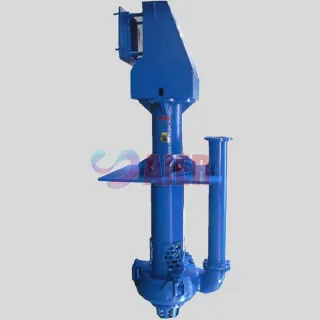டிசம்பர் . 04, 2024 20:30 Back to list
Premium Pumps for Efficient Lithium Slurry Handling and Manufacturing Solutions
High-Quality Pumps for Lithium Slurry Manufacturing
The lithium industry has experienced unprecedented growth in recent years, primarily driven by the booming demand for lithium-ion batteries in electric vehicles (EVs) and other energy storage applications. As the extraction and processing of lithium become increasingly sophisticated, the equipment used in these processes must also evolve to keep pace. Among the most critical components in lithium slurry manufacturing are high-quality pumps, which play a vital role in transporting the slurry throughout various stages of production. This article explores the significance of using high-quality pumps in lithium slurry manufacturing, their operational challenges, and the criteria for selecting the right pump solutions.
The Importance of Pump Selection in Lithium Slurry Manufacturing
Lithium slurry is a viscous mixture composed of finely ground lithium ore, water, and several chemical additives. The manufacturing process demands equipment that can efficiently handle the unique properties of this slurry. High-quality pumps are essential for several reasons
1. Performance and Efficiency Lithium slurry processing requires pumps that can consistently deliver optimal flow rates under varying conditions. High-performance pumps minimize downtime and enhance operational efficiency, which is critical in meeting production targets.
2. Durability and Reliability The harsh conditions associated with lithium slurry — including abrasive materials and corrosive chemicals — necessitate pumps made from robust and durable materials. High-quality pumps are engineered to withstand these challenges, reducing the likelihood of breakdowns and extending the lifecycle of the equipment.
3. Operational Flexibility Different stages of lithium extraction and processing may require different pumping solutions. High-quality pumps offer versatility in transitioning between various applications, from transporting slurry to mixing and filtering.
4. Cost-Effectiveness While the initial investment in high-quality pumps may be higher, the long-term savings due to reduced maintenance costs, fewer breakdowns, and enhanced energy efficiency typically offset this initial expenditure. A reliable pump system can contribute significantly to the overall profitability of lithium operations.
Challenges in Pumping Lithium Slurry
Pumping lithium slurry comes with its own set of challenges. The slurry can be highly abrasive, leading to rapid wear and tear on pump components. Additionally, the viscosity of the slurry can change based on concentration, temperature, and other factors, complicating pump selection. It is crucial that manufacturers understand these challenges to choose pumps appropriately.
1. Abrasiveness The solid particles within lithium slurry can cause significant erosion to pump casing and impellers. This necessitates the use of specially designed materials that can resist wear.
high quality pump for lithium slurry manufacturer

2. Viscosity Changes Slurry viscosity can vary, necessitating pumps that can accommodate this variability without losing performance. Variable speed drives or progressive cavity pumps can help adjust flow rates according to the slurry's characteristics.
3. Temperature Fluctuations Changes in temperature can affect the slurry's consistency and flow, requiring pumps that can operate effectively across a range of temperatures without compromising efficiency.
Criteria for Selecting High-Quality Pumps
Choosing the right pump involves several critical considerations
1. Material Selection Pumps should be constructed from materials resistant to abrasion and corrosion, such as stainless steel or specialized alloys, to ensure durability.
2. Pump Type Depending on the specific requirements of the lithium slurry application, manufacturers may choose from centrifugal pumps, positive displacement pumps, or progressive cavity pumps, each with its advantages.
3. Flow Rate and Pressure Requirements It is vital to analyze the operational flow rates and pressure requirements to ensure that the selected pump meets the necessary specifications.
4. Efficiency Look for pumps that are designed to operate efficiently across different conditions, which will lead to energy savings over time.
5. Maintenance and Support High-quality pumps should be easy to maintain, and manufacturers should provide robust support for troubleshooting and repairs.
Conclusion
In the rapidly evolving lithium industry, the role of high-quality pumps in slurry manufacturing cannot be overstated. Selecting the right pumping solution is essential to enhance operational efficiency, reduce costs, and ensure the longevity of equipment. By understanding the challenges associated with lithium slurry and adhering to critical selection criteria, manufacturers can make informed choices that will contribute significantly to their operational success. Investing in high-quality pumps is not merely a choice; it’s a necessity in today’s competitive lithium market.
-
Top Submersible Pump Companies High Quality Manufacturers & Suppliers in China
NewsJul.08,2025
-
High Quality Seal for 5 Inch Dredge Pump Reliable China Manufacturer & Supplier
NewsJul.08,2025
-
High-Efficiency Slurry Sand Pump from Leading China Manufacturer – Durable & Reliable Solutions
NewsJul.07,2025
-
High-Quality Slurry Pump Made in China Durable Steel Mill Slurry Pump & Parts
NewsJul.07,2025
-
High Quality Excavator Dredge Pump Manufacturer & Suppliers from China – Reliable, Durable, Efficient Solutions
NewsJul.07,2025
-
Wholesale Slurry Pump Closed Impeller Supplier High Efficiency China Slurry Pump Closed Impeller
NewsJul.06,2025
